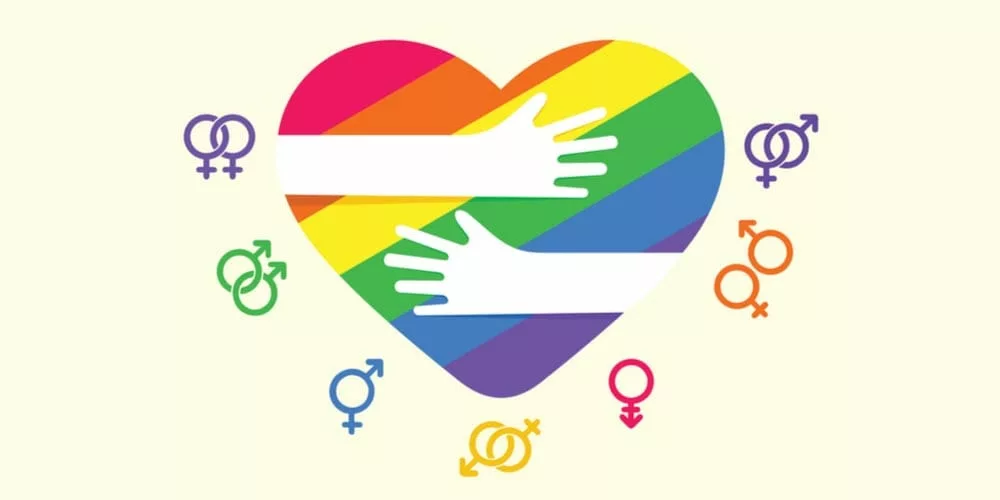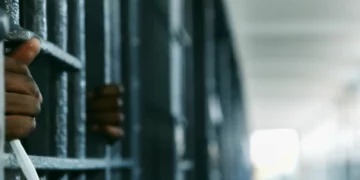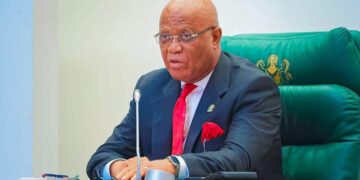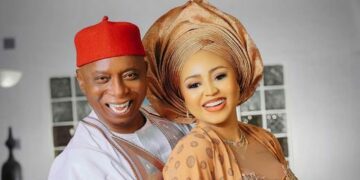Sexual and reproductive health is a state of complete physical, mental and social well-being in all matters relating to the reproductive system.
It implies that people are able to have a satisfying and safe sex life, the capability to reproduce and the freedom to decide if, when, and how often to do so.
However, the vulnerable populations, including women with disabilities (WWDs), are often faced with barriers to access due to their special circumstances.
Such barriers include communication of information, ignorance of service providers, societal attitude, and inadequate capacity of service providers to manage clients with disabilities.
The director, family health, Federal Ministry of Health, Dr. Salma Ibrahim, noted that these challenges can combine to deny persons with disabilities basic reproductive health services.
Ibrahim, who spoke at the Knowledge Cafe/Webinar Series, with the theme: “Expanding Access to Sexual and Reproductive Health Services and Rights to Vulnerable Populations, organised by Marie Stopes and supported by the Federal Ministry of Health and Nigeria Health Watch, said the vulnerable populations have the same sexual and reproductive health needs as others not deemed vulnerable.
“They need the same minimum package of reproductive health services available to everyone else,” she added.
She, however, said that the federal government in collaboration with several partners over the past years have made significant efforts to ensure that access to Sexual and Reproductive Health (SRH) services and rights are made available at all levels of health care to support vulnerable populations.”
Speaking on innovations and strategies for effective SRH programmes for PWDs, the head, women and gender, National Commission for Persons with Disabilities, PATIENCE OGOLO-DICKSON, said WWDs face unique barriers to full realisation of their sexual and reproductive health.
She described the forms of manifestation of barriers as access to physical health facilities, access to SRH information, discriminatory SRH care, lack of decision making and personal autonomy, discrimination and Stigma.
According to her, government have obligation to respect, protect and fully fulfil SRH for all WWDs, adding that government have the obligation to ensure SRH Services are available, accessible, acceptable and quality.
Also speaking, the executive director, Deaf Women Aloud Initiative (DWAI)N and national president, Deaf Women Association of Nigeria, Hellen Beyioku-Alase, said universal health states that all people have rights to access health services they need, when and where they need them, without financial hardship. It includes the full range of essential health services, from health promotion to prevention, treatment, rehabilitation, and much more.
Quoting the World Health Organisation’s statistics, Beyioku-Alase said estimated that 15 per cent of every country’s population is persons with disabilities. In Nigeria, with a population of over 200m, there is over 35 million persons with disabilities including women and children.
Highlighting the intergenerational norms impeding SRHR for persons with disabilities, she said “Religion sees WWDs as sinful and sick that they need healing from their diseases. They also wonder how can a sick person mingle get married or have a sexual life, access to family planning and take contraceptives.
“Patriarchy: due to gender inequality, WWDs are marginalised, it is triple the effects because of their gender, disability, and because they are often the poorest of the poor. compared to men with disabilities WWDs still face barriers to SRHR because of cultural belief.
“Negative perception: because of ignorance, family and society have formed negative perception about WWDs, they believe they cannot have children, get married or make choices of who their life partner should be and that they cannot raise children for example when WWD is pregnant and try to access Ante-natal care we often hear words like “madam you no pity yourself” from health providers.
“Myths and misconceptions forms a lot of stories about WWDs affect their SRHR e.g women with disabilities are not sexually active, WWDs are completely dependent on their families in all areas including their sexuality, raping women with albinism brings good luck, deaf people are “Dumb”.
Misconceptions about disabilities often lead to name calling which further affects their SRH needs. Names like cripple, imbecile ,deaf and dumb, mumu (stupid), Just imagine women who are called such names coming to the facility to access care.”
On ensuring a positive shift that includes persons with disabilities, she said public awareness on the health rights of WWDs is important.
She Advocated for accessible budgetary line for WWDS SHR needs while calling on stakeholders in the health sector to work together to put mechanisms in place that protect the SRHR of young women with disabilities.
Speaking further, she said “Existing health policies should be implemented for easy SRH access for women with disabilities.
“Make healthcare facilities accessible by providing sign language interpreters, health information on braille and Ramps.
“Raise more awareness through evidence-based research findings. Persons with disabilities are experts in their own rights; they can comprehend and make decisions like every other person , Do not speak for them.
“Demystify misconceptions and myths in reproductive health for women with disabilities by training health providers on disability inclusion. Conduct needs assessment in health facilities so as to make it accessible for women with disabilities,” she urged.
She added that “s women with disabilities our impairments is not a barrier to access but the society, therefore, It is important to remove the prejudice and misinformation about the sexual and reproductive health rights of persons with disabilities and allow us have access to our health rights just like every other person.”
Speaking on challenging social norms to reach persons with disabilities with sexual and reproductive health services, the director Programmes for MSION, Ogechi Onuoha, said everyone deserves the right to make their own choices about their bodies and futures. Yet, many people with disabilities are denied that choice.
According to her, “In Nigeria, the 2018 NDHS revealed that 7 per cent of household members aged five and above have a disability in at least one functional domain — seeing, hearing, communication, cognition, walking, or self-care.
“Since 2018, MSION through the Women Integrated Sexual Health (WISH) project, a UK FCDO’s flagship sexual and reproductive healthcare programme with the key aim to ensure we leave no one behind, is delivering access for communities often marginalised from healthcare, such as adolescents and people with disabilities.
“We are removing barriers with government and community partnership – effective community entry initiate and nurture influential relationships with the government and community to secure and sustain interest & support for PWD.
“This support cascades down to community members, paving the way for greater acceptance; e.g., communities supporting service uptake for PWD.”











